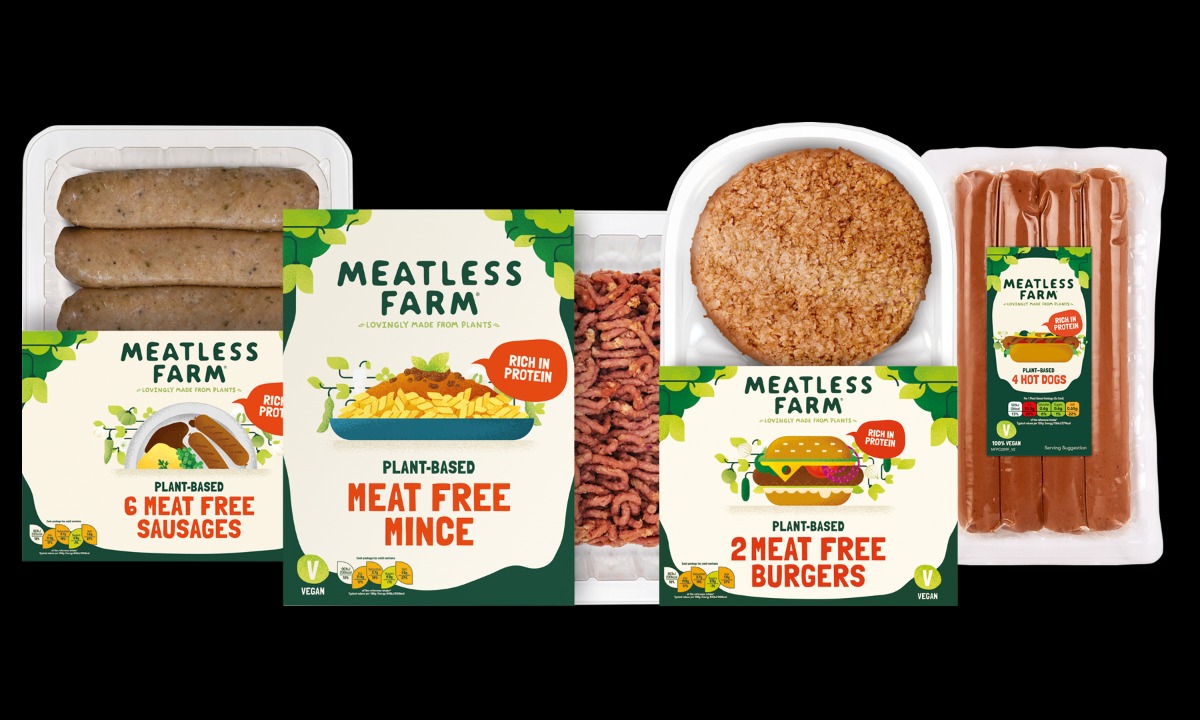Meatless Farm founder says he is not "anti-meat" and is undecided about future of the business
By John Reynolds on Thursday 9 September 2021

By John Reynolds on Thursday 9 September 2021

In an interview with Liberum, Morten Toft Bech believes heavy meat consumers should steadily move away from eating meat every day. He has also called for meat aisles to be replaced by protein aisles, believes there is a great disparity between the US and European funding markets, and is unsure about the future direction of Meatless Farm.
The founder of plant-based company Meatless Farm says he is not “anti-meat” and says that he will be happy if the company gets a half per cent share of the meat market.
Meatless Farm, which makes pea protein-based meat alternatives, launched in 2016 and grew by nearly 200 per cent last year.
Morten Toft Bech, the Danish-born entrepreneur and founder of Meatless Farm, was speaking at an event hosted by the investment bank Liberum.
The video interview can be viewed here.
In the interview, he said: “We’re not anti-meat in any way. I don’t believe that finger pointing and this thing of telling people what they can’t do is going to get anyone to actually do it.
“So our approach is much more gentle and we just say ‘well you know the love story you have, the consumer, with meat seven days, often three times per day, is not sustainable.
“So try to exchange one day or two days a week with something else, with a plant-based diet and then gradually reduce your meat intake.'”
Indicating that he is not a blinkered plant-based enthusiast but is interested in people eating healthier options derived from more sustainable production methods, he said he would be happy for meat consumers to switch away from cheap processed meat to higher-quality offerings, like free range meat.
Toft Bech expressed a concern that plant-based products could end up in a price war with each other, which he said would have dire consequences.
“If we start just discussing how much a kilo of plant-based meat costs then we end up in the same place as traditional meat and it will not be healthy products and it will not be a sustainable supply chain," he said.
Meatless Farm’s blockbuster product is a pack of plant-based minced meat, which he says is good for family favourites like spaghetti bolognese and shepherd's pie.
It has commercial tie-ups with Leon and Pret a Manger and employs more than 100 people with offices in Leeds, Amsterdam, Tribeca and Singapore.
Toft Bech wants the layout of supermarkets to change, dispensing with meat aisles, replacing them with protein aisles, which he says “would naturally reduce the meat consumption”.
He thinks Covid has helped shift people’s views more towards non-meat products.
He says: “Now Covid has come in to the play which means that people are focusing much more on say their health and their nutrition and what the gut bacteria and high fibrous diet does to your immune system and so forth, which is another plus I think for plant-based food.”
Alternative meat is set to account for around 10 per cent of the $1.4 trillion-a-year global meat market by 2029, according to research from Barclays.
But he is realistic about the potential of plant-based alternatives and his own business.
He said: “My ambition for Meatless Farm is to have half a per cent market share. It is still massive numbers and you can build an incredible business around it.
“We are not going sit here and say ‘we are going to take 5 per cent of the global meat market' because it’s not going happen, we simply can’t produce those volumes as a single company.”
He compared the US and European investor landscape, describing it as a “very uneven playing field” pointing out that plant-based rival Impossible Meat had raised around $1.3bn while Meatless Farm had raised around £60m to date.
Meatless Farm, which is still loss-making, launched a crowdfunding campaign this summer, which took in over £3.5m.
The founder says he is "undecided" about the future of the business.
He said: "I am undecided what the strategic future of the business is, whether it's a collaboration, strategic partnership, whether it's an IPO, whether it's a larger sort of private placement."
He said the priority for the business is to get through this year, as the world attempts to return to normality following Covid.
2 August 2021
Paul Cuatrecasas
13 September 2021
Paul Cuatrecasas
30 June 2021
Paul Cuatrecasas
9 September 2021
David Stevenson